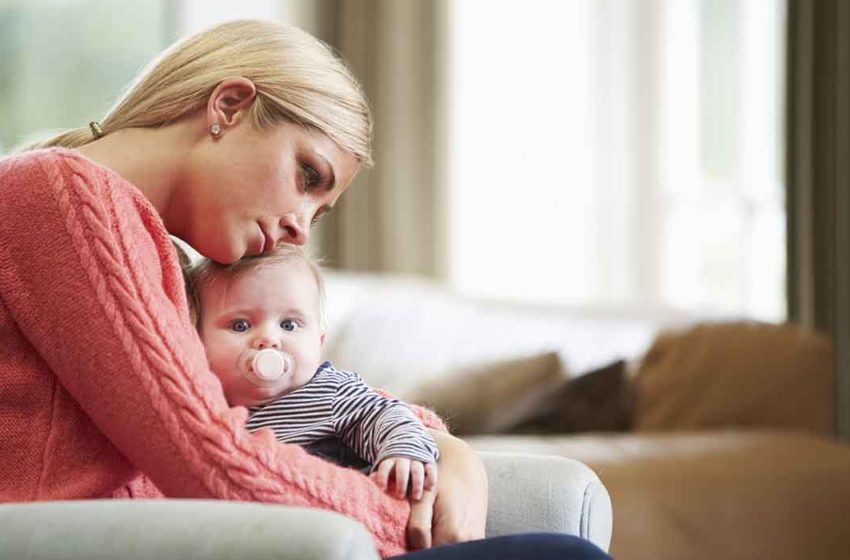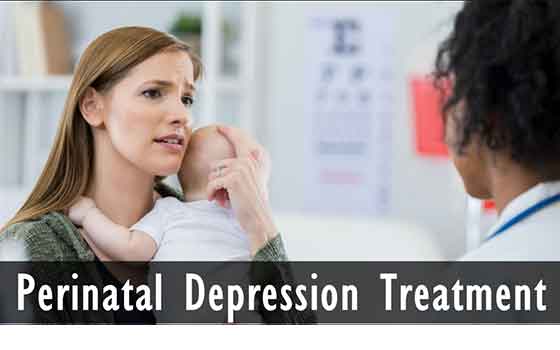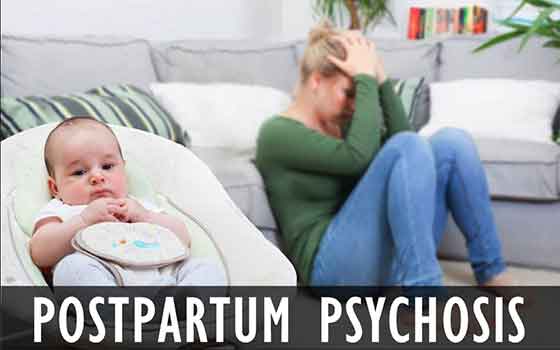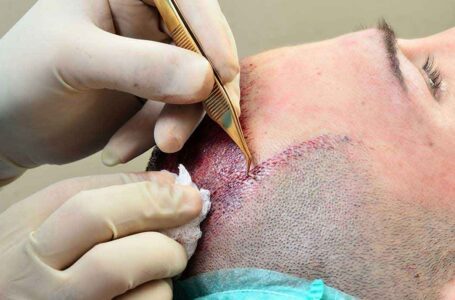What Is Perinatal Depression & Postpartum Psychosis?

Perinatal depression refers to the depression that new moms experience after childbirth and pregnancy. Generally, the most common causes of this health condition include the physical and psychological changes that pregnant women experience. Hormonal imbalance is one of the most common triggers of depressing thoughts. Thus, new mothers experience emotions like fear, anxiety, stress, and depression. All these emotional experiences are quite common among most of the new mothers. However, in many cases, the symptoms become worse or don’t go away over time. In such cases, the doctor might diagnose the patient with a condition called Postpartum Psychosis. With this in mind, let’s know more as to what is Perinatal depression & its signs.
What Causes Perinatal Depression?
Even though, the exact causes of perinatal depression are unknown, yet there are some possible triggers that cause this problem. To begin with, here are some of the most probable factors that might lead to this psychological condition.
- Lack of sleep
- Lack of emotional and family support
- Poor health of baby
- Lack of vitamin D
- Traumatic Pre-Pregnancy & Post-Pregnancy
- Depression History
- Hormonal Imbalance
- Smoking
- Unintentional Pregnancy
- Poor Relationships
- Sexually or Physically Abusive Experiences
Perinatal Depression Signs
In perinatal depression, new moms often experience mood swings & stress caused by the physical and psychological changes. In many cases, the symptoms may become worse over time and medical assistance becomes necessary. Here are some of the most common perinatal depression signs that new mothers might experience.
- Constant Sorrow
- Feeling Worthless
- Feeling Hopeless
- Repeated Cry Spells
- Lack of Concentration
- Insomnia
- Tiredness
- Mood Swings
- Bad Temper
- Stress
- Difficult In Emotionally Connecting With The Child
- Loss of Interest In Favorite Chores
- Increased or Decreased Hunger
- Suicidal Thoughts
Perinatal Depression Treatment

Don’t worry if you’re experiencing the above symptoms post childbirth. This problem can be easily treated with proper treatment. You just need to get in touch with a doctor and you’ll get all the assistance to manage the symptoms. Apart from getting treatment from a doctor, there are various other ways that you may try to handle this problem. First of all, try to talk and share your feelings with your family and friends. Furthermore, you can get over this problem and get a helping hand for the baby with your family’s help.
One of the biggest problems with depression is feeling worthless. Thus, you must take it easy on yourself and give your best as a new mother. Every new mom has a different equation with her new born, so don’t compare yourself with others. If you are not able to bond emotionally with your child, get help from a maternal doctor or nurse. To manage the stress, give yourself time by doing an activity you enjoy or by doing yoga and meditation.
Also, you can get therapeutic treatments because they are a proven treatment option for this problem. There are various types of therapies available for new mothers experiencing perinatal depression. Cognitive Behavioral Therapy (CBT) is the first type of therapy that the doctors suggest in most cases. In this therapy, the therapist creates a link between the patient’s thoughts and feelings. After that, the therapist will let you know the ways to convert negative thoughts into positive ones. Thus, new moms are easily able to manage symptoms of perinatal depression with these therapeutic mechanisms.
Furthermore, another therapeutic treatment called the Interpersonal Therapy is also a great solution for this problem. In this therapy, the therapist provides guidance to the patient for improving and handling their interpersonal issues better. Thus, improving social relations with family and friends help in handling the perinatal depression symptoms in a much better way. Moreover, it helps new mothers to share their feelings to get better emotional and social support.
In addition to this, your doctor may also prescribe antidepressants to manage depression & its symptoms. These antidepressants help in regulating the production of mood-controlling neurotransmitters in the brain. Generally, the most common antidepressants that doctors prescribe for treating perinatal depression are SSRIs (Selective Serotonin Reuptake Inhibitors). Furthermore, you can also opt for acupuncture treatment to manage this problem.
Postpartum Psychosis

As we all know, pregnancy and childbirth can be quite an overwhelming experience for women. Furthermore, these mental and physical changes can lead to perinatal and postpartum depression. Generally, the symptoms include mood swings, crying spells, sorrow, worthlessness, and other negative feelings. However, these symptoms can get worse over the time to turn into suicidal thoughts and extremely negative feelings. In such cases, the patient might be suffering from postpartum psychosis. This is a serious psychological condition, which requires immediate medical treatment. The ratio of new mothers experience postpartum psychosis is 2:1000, and it may happen in 2-3 days after childbirth.
Postpartum Psychosis Symptoms

Generally, the symptoms of postpartum psychosis are worse than the symptoms of perinatal depression. Here are the most common signs that new mothers suffering from this psychological condition might experience.
- Delusional Thoughts
- Hallucinations
- Extreme Bad Temper
- Insomnia
- Paranoid Thoughts
- Frequent Mood Changes
- Inability To Communicate At Times
- Extreme Activeness
- Suicidal Thoughts
- Thoughts Of Hurting The Newborn
Causes Of Postpartum Psychosis
There are no exact causes of postpartum as it can happen to any new mother. However, certain factors contribute to this problem, such as:
- Bipolar Disorder
- Hereditary Problems Of Bipolar Disorder
- Past Experience Of Postpartum Psychosis
- Hereditary Problems Of Postpartum Psychosis
- Being Pregnant For The First Time
- Avoiding Prescribed Antidepressants In Pregnancy
- Hereditary Problems Of Schizophrenia
Postpartum Psychosis Diagnosis
Generally, a doctor mostly asks the patient to fill a depression-screening questionnaire. The answers given in the questionnaire helps the doctors to diagnose a patient with postpartum psychosis. Thus, the patients need to tick the symptoms they’re experiencing & answer other relevant questions. Ordinarily, these symptoms include anxiety, depression, suicidal thoughts, and thoughts of harming the child, etc. In addition, the doctors might ask questions regarding hereditary problems like bipolar disorder, schizophrenia, and postpartum psychosis.
Based on this screening test answers, the doctors rule out the postpartum blues and postpartum depression. Furthermore, the doctors diagnose the patient with postpartum psychosis if patient is suffering with the above symptoms.
Postpartum Psychosis Treatment
As this is a critical mental condition, you must seek immediate assistance from a medical professional. To begin with, hospitalization of the patient is necessary for the proper treatment of this psychological problem. Generally, this process takes from a few days to few weeks, depending upon the severity of the problem. During this time, the doctors ensure that the patient’s psychological condition is completely stable and harmless to both herself & the newborn. Consequently, after confirming the mental condition of the patient to be stable, the doctors allow the patient’s discharge.
In addition, postpartum psychosis treatment includes medicines like anti-psychotics, mood stabilizers, antidepressants, and anti-anxiety drugs, etc. In many cases, the doctors may prescribe ECT exam if the medicines or drugs don’t show any positive effects on the patients. ECT refers to Electroconvulsive Shock Therapy, which involves the process of sending electromagnetic stimulation through the brain in an controlled environment.
The Takeaway!
Hence, these were all the essential details of perinatal depression and postpartum psychosis. Thus, if a new mom experiences any of the above symptoms, you must get medical help immediately. However, don’t panic as these health conditions are easily curable with the right treatment. Furthermore, it’s very important that you offer proper emotional support to pregnant women and new mothers. If you have any queries, do write to us in the comments section below.



